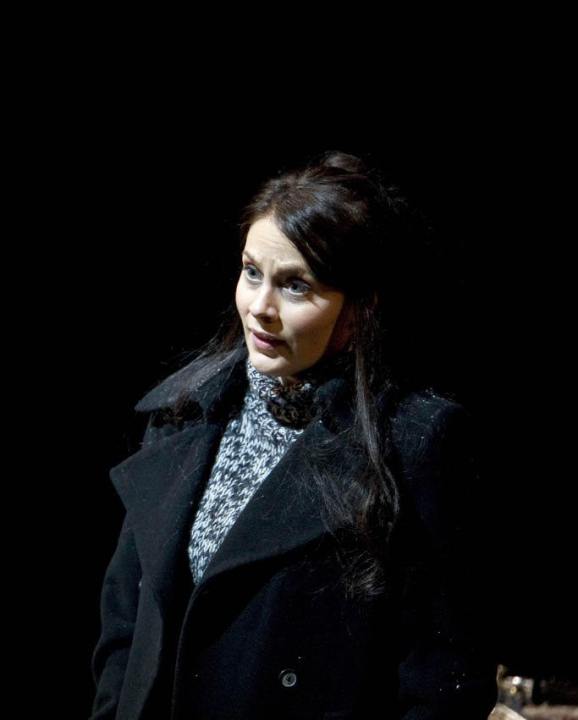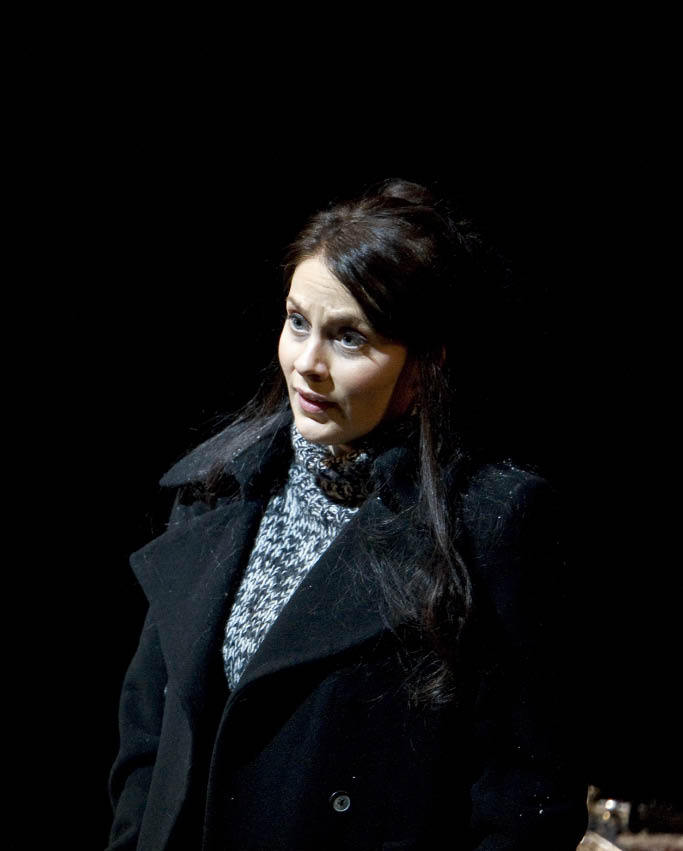Elektra
Barbican
La bohème
Opera North
In his little-read but wonderful book Daybreak, Nietzsche writes:
Our composers have made a great discovery: interesting ugliness too is possible in their art! And so they throw themselves into this open ocean of ugliness as if drunk, and it has never been so easy to compose…But you will have to hurry! Every art which has made this discovery has turned out to have only a short time to live.
Written in 1880, with Wagner in mind but unmentioned, the words fit Richard Strauss’s Elektra with uncanny precision. Everyone exclaims about Strauss’s alleged retreat from modernism after Elektra, but where was there to go? The extraordinary thing about Wagner’s harmonic audacities is that they are always leading somewhere, even if the goal is postponed to the last bar of the opera. But Strauss, in Elektra, startles minute by minute, but with no cumulative effect. The result is that his work plays merely on the nerves, for emotions need time to develop and take shape. The hysteria of Elektra herself, and of Clytemnestra, is conveyed by orchestral spasm and vocal ungainliness. It is apt that the thematic substance of this work should be so undistinguished, for these characters live only in the moment, however much they go on about the past and the need for vengeance. The big tune in the middle of Elektra’s monologue is a piece of intrusive schmaltz, which Strauss can’t employ in a genuinely motivic way, but can only drag in from time to time as a supposed reminder of the positive side of Elektra’s endeavour.
My feelings of unmitigated hostility to this climactic work in the Straussian oeuvre were intensified by the concert performance at the Barbican, an LSO occasion with Valery Gergiev in command. There have been conductors such as Carlos Kleiber and Mark Elder who manage to give an impression of light and shade in this opera, even of continuity and growth. That kind of thing is of no interest to Gergiev, who, head buried in score, incited his orchestra to play each bar for all it was worth, or somewhat more; and they seemed delighted to oblige, especially the sadistically enthusiastic members of the percussion centre. Birgit Nilsson herself might have been intimidated, but Jeanne-Michèle Charbonnet gamely gave the title role all she had, making almost as much impression by her acting, limited though that had to be — no one else did any — as by her voice, which lacks not so much the size as the amplitude for the role. The contrast with Angela Denoke’s Chrysothemis was heightened, Denoke pouring out sensuous tone in what would have been merciful relief had not the accompaniment been so unremittingly noisy.
The star of the show was Felicity Palmer, chewing every bit of non-existent scenery, characterising Clytemnestra’s fearful existence with desperate relish, and in astonishingly full vocal form. The negligible male roles were well taken by the weirdly entranced Matthias Goerne and the warm tenor Ian Storey. A flock of Russian imports sang the maids. The score was given uncut. Not only was Gergiev loud, he was also, for much of the first hour, slow, as if to ensure that the singers conveyed the characters’ agonies via their own. It was all greeted with abandon by the audience in the sweltering Barbican Hall.
What a relief to go to Leeds for yet another production of La bohème, this one originally by Phyllida Lloyd and dating from 1993, but I hadn’t seen it before. It updates the action, with the painter Marcello, quite wonderfully sung and even more movingly acted by Marcin Bronikowski, graduating from abstract expressionism in Act I to Warhol coloured prints in Act IV. The central pair are as plausibly beautiful and youthful as you would ever see, and Anne Sophie Duprels is in all respects ideally cast as Mimi; I can never understand why she isn’t an international star. Bülent Bezdüz, a Turk, has all the right ideas about Rodolfo, and acts with swagger and, later, anguish such as one rarely sees on the operatic stage. With a pleasant light voice, he lacks only — at any rate on the opening night — a secure top. Still, it was yet another memorable Bohème, the overwhelming reason for that being the miraculous conducting of Richard Farnes. Anyone who wonders at that ‘miraculous’ should seek out a performance: I can think of no contemporary conductor who could rival Farnes for taking this familiar score and, without a hint of affectation or point-making, produce so utterly fresh an account. The heart-stopping moments — ‘O soave fanciulla’, Musetta’s entry in the last act, and so on — packed a tremendous punch, the whole score flowed seamlessly, the orchestra played with gorgeous tone. When you hear something in this league, once every few years, you realise that there are no overfamiliar masterworks, just, usually, routine performances.







Comments